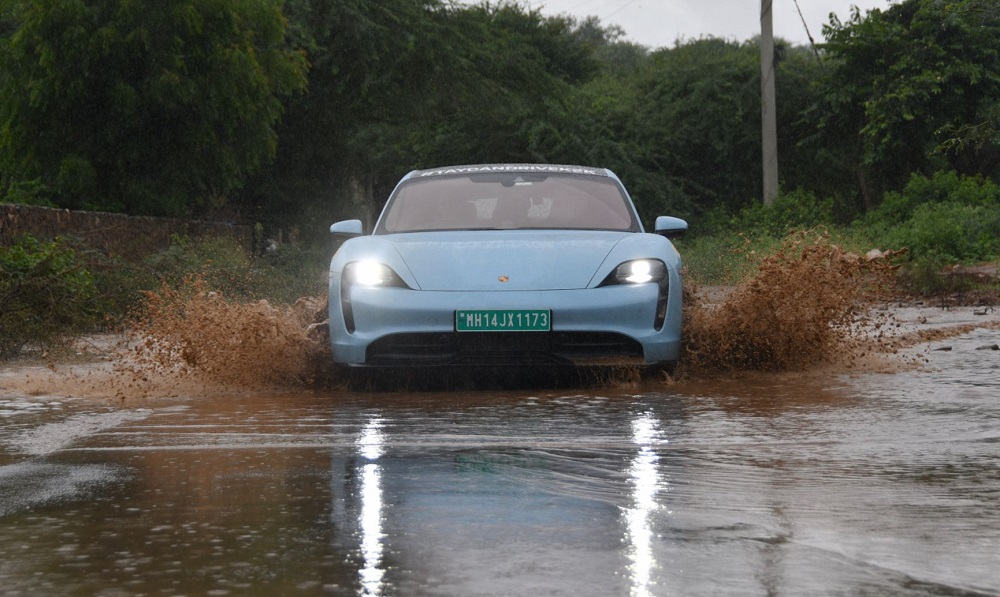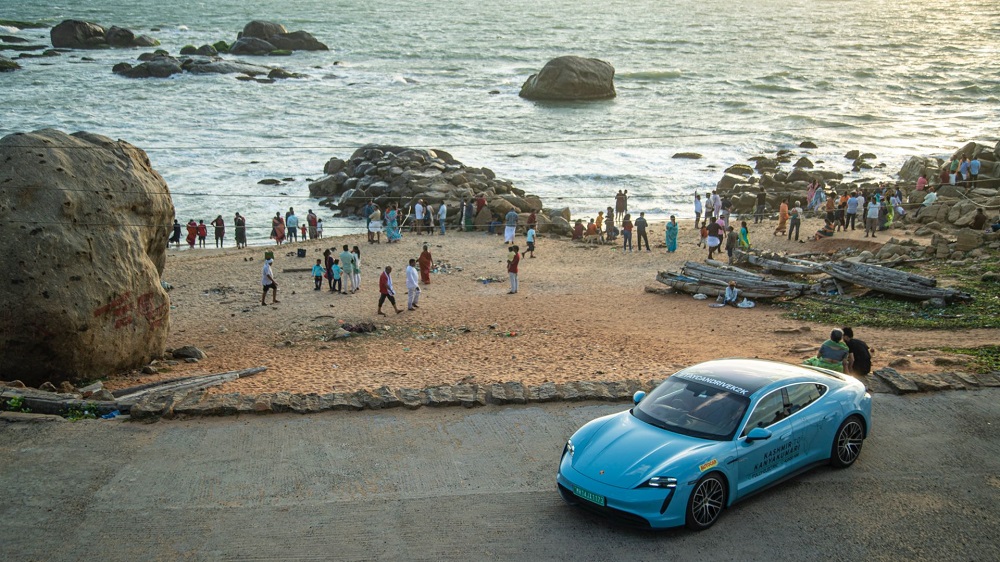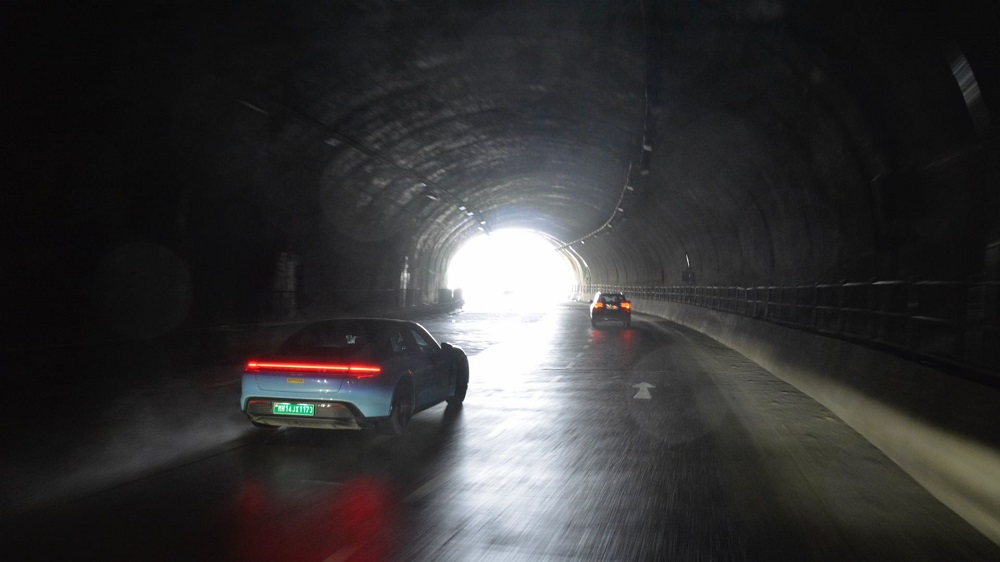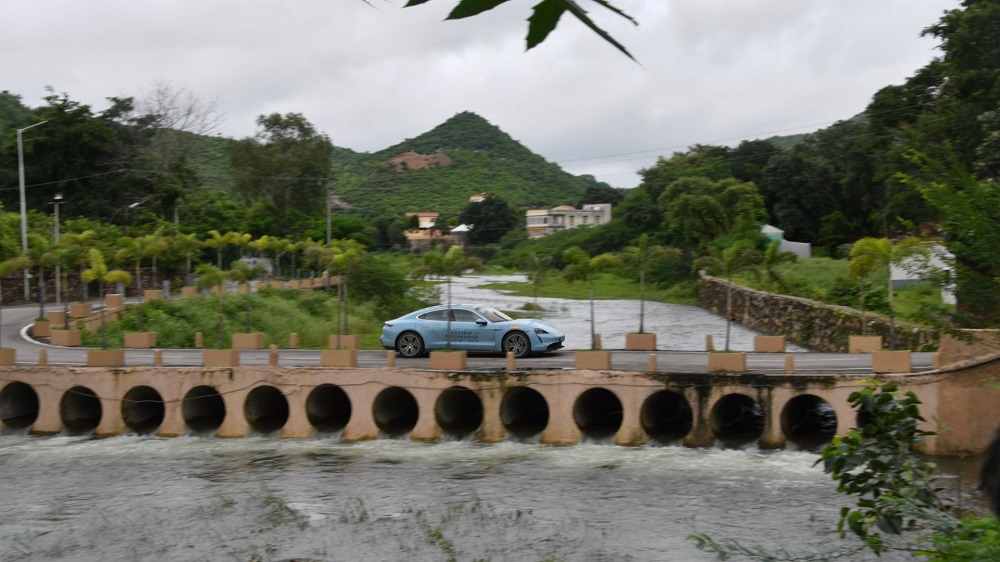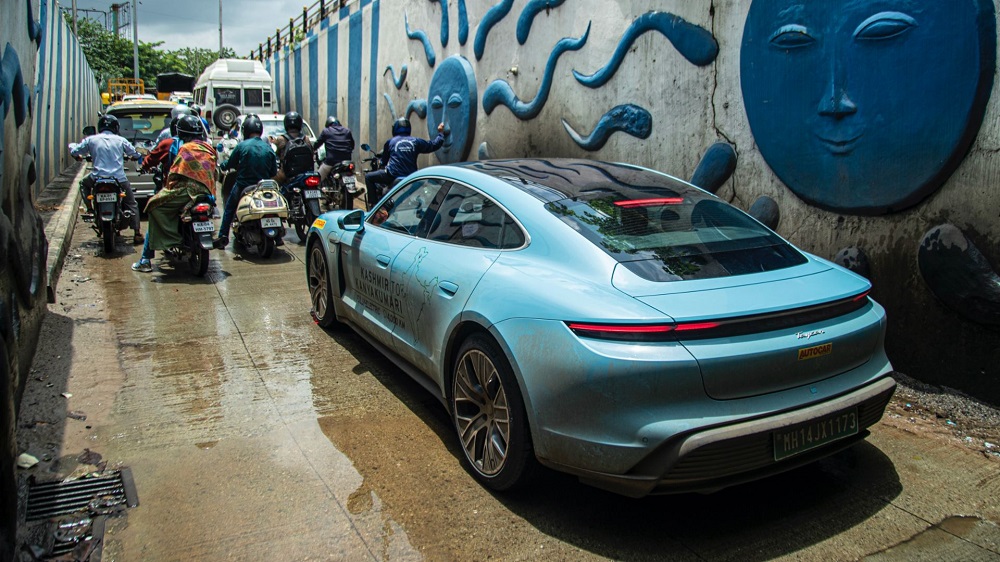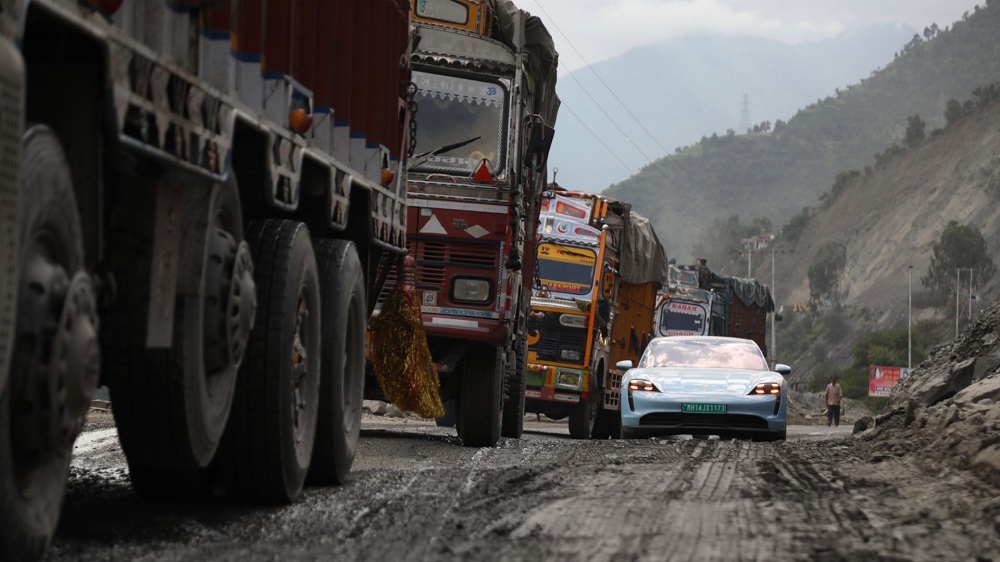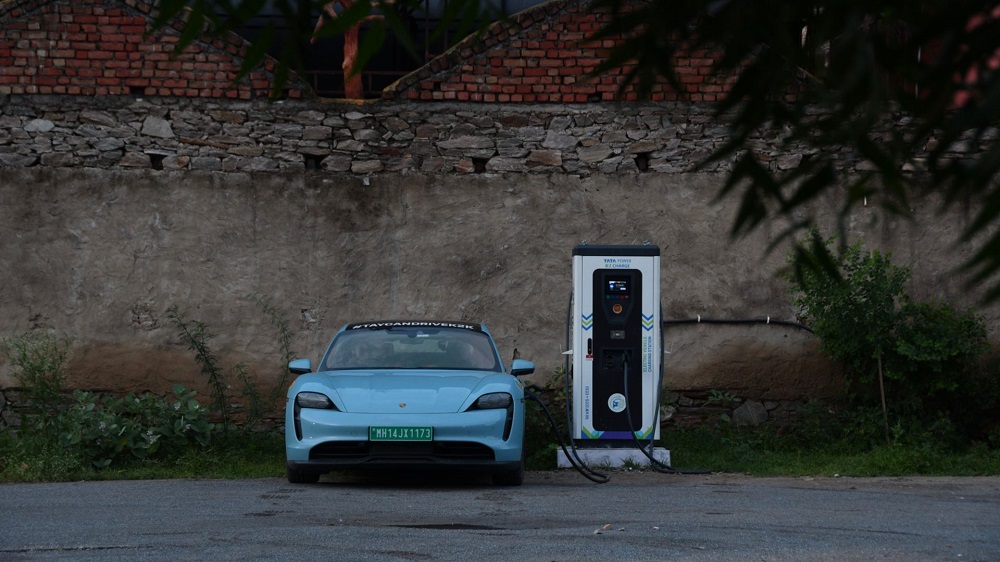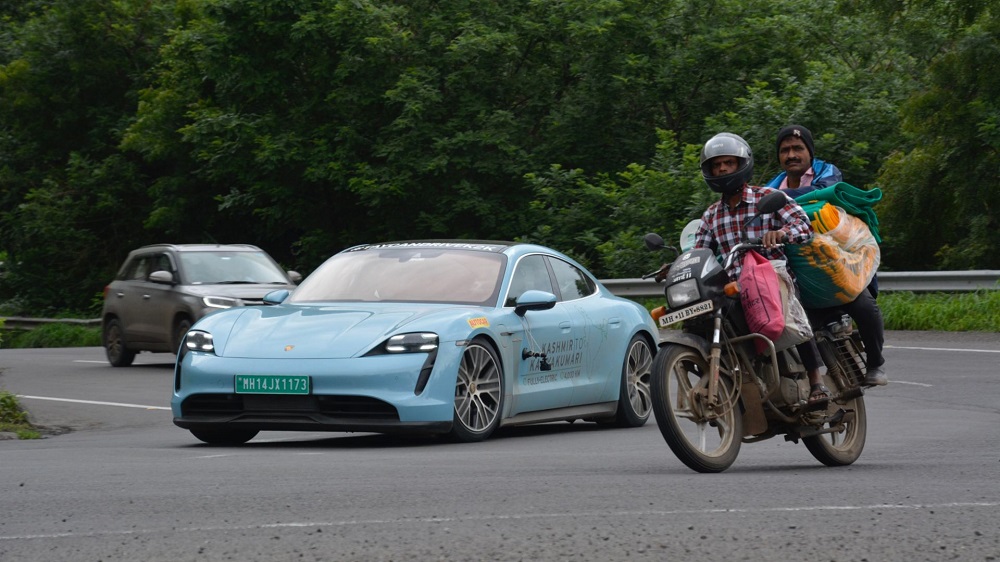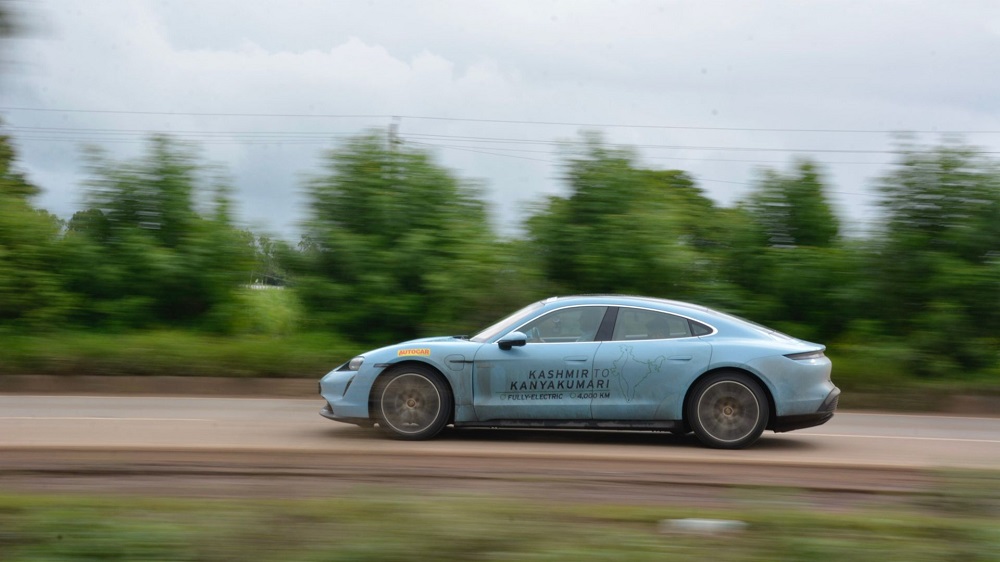The K2k is a formidable undertaking in any car and for even the most seasoned local motorists, the idea of tackling the infamous route in an EV would be unthinkable. That all changed last August when a small team of journalists from Autocar India decided to mark the magazine’s 23rd anniversary by using an entirely standard Porsche Taycan to take on the K2K, documenting the journey in real time via social media. The Taycan was launched in country less than a year ago, so this was also an opportunity for Porsche to help raise its visibility, and a greater awareness of electrification, across India.
“The electric car is, relatively speaking, still quite a new mode of transport in India,” explains Gavin D’souza, Autocar’s Digital Editor and one of four staff members who shared the driving. “A lot of people are both excited by it and a little fearful, and of course their biggest fear is range. So we set out to prove that with a little bit of planning and foresight, you can do over 4,000 km in an electric car. And of course, the Taycan added a bit of dynamism. If you’re doing the K2K in an electric car, why not do it in one that’s exciting?”
10 states and a wide variety of topography
Plotting their route carefully and using a community driven charging app, the team were able to map out a course that would take them through 10 states and a wide variety of topography, with a mixture of mountains, plateaus, deserts and cities throwing every conceivable hurdle at the Taycan and its drivers.
"As
we closed in on Mumbai the challenge suddenly became very real,”
recalls Assistant Editor Jay Patil, “because the roads had been
completely washed away in the monsoons. Thankfully all Taycan models in
India are fitted with Smartlift and that saved us on quite a few
occasions. In Punjab it even went through water that was above door
level, which did make us worry in an electric car, but the Taycan just
handled everything.”
Nikhil Bhatia, Autocar India’s second
Assistant Editor-Video, drove the final leg, and was not sure what to
expect when he was handed the car. “I’d heard a lot of worrying stories
about the roads and the conditions, and actually I lucked out with some
of the best roads on the trip and had a blast. We expected the Taycan to
handle well and we expected it to be fast. What we didn’t expect was
for it to be so ‘India friendly’. That was one of the big takeaways from
the drive. The Taycan was really put through hell but it made it right
to the end on roads where even a Cayenne would feel out of place!”
Enjoying the Taycan and the journey
The
entire journey took the Autocar team two weeks, including a two-day
stopover in Mumbai and a lost day at the very start following a
landslide that had washed away a substantial section of the highway. But
the clock was never the main consideration, as D’souza explains: “This
was not a race against time, and that felt good. We enjoyed the car and
enjoyed the journey. And I never thought I’d say this, but I really
enjoyed pushing the efficiency of the Taycan, and even managed 7.1 km
per kWh on some of the straighter sections of the trip.”
The other objective of the journey was to gauge reactions around the country to the still-unfamiliar Taycan, something that proved universally positive from villages to cities and with people of all ages. “There were different responses depending on where we were,” D’souza continues. “In some of the smaller towns and rural areas a Porsche of any type was quite a surprise, let alone one in Frozen Blue Metallic. It was a thing of wonder, and that wonder only grew when we explained it was electric and that we were doing such a long journey in it. But even when we took it to bigger cities like Delhi, Mumbai and Bangalore, people were still amazed that we were attempting something so monumental in an EV.”
Attention for the Taycan all over India
In fact, the way the Taycan was greeted all across India would prove to be one of the highlights of the trip for the team, as Bhatia explains: “At every stop, it was so lovely to see people coming over and posing with the car, joy on their faces. It’s something that stays with you, because you remember yourself as a kid when you saw your first Porsche. And it was nice to experience that again from the other side of the windscreen!”
The Taycan had been followed across the entire treacherous route by a fully equipped support car, driven by road tester Rahul Kakar. Not once was help needed, however, and as the Taycan took in the last few kilometres of the journey, the significance of what had been achieved by the Porsche, entirely unassisted, began to hit home. “I was in the support car throughout,” says Kakar, “and from there, seeing how the Taycan managed to take on roads that were washed away completely was a great thing to watch.
And on that last day, when we arrived in Kanniyakumari, it was magical, because the road there is surrounded by wind turbines. So seeing the Taycan driving through there was almost ceremonial. It was an amazing thing to watch.”

